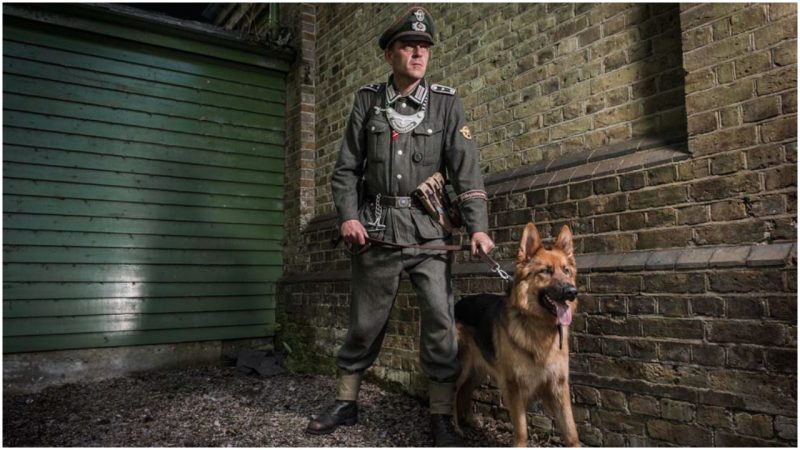Everyone knows the word “Nazi” and the evil it entails.
World War II is a huge part of our history, with Hitler’s Nazi Germany being remembered as the villains. As such, it is not surprising that the word “Nazi” would still be around years later.
Indeed, “Nazi” has become a word that continually drags us back to the years that held the largest conflict in history.
It’s been several decades since WWII, but people both consciously and subconsciously still use the term Nazi when referring to Germans in general.
Everyone knows the word “Nazi” and the evil it entails.But how did the term come into being? Was it created by Hitler, or by his opponents? And what did the Nazis themselves think of the term?
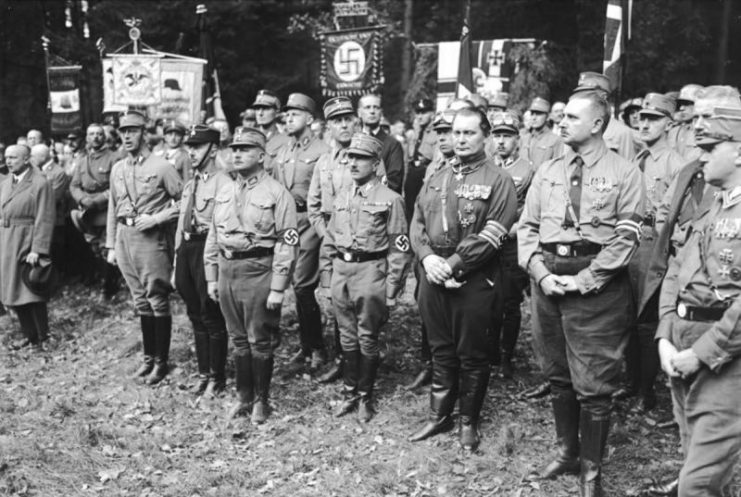
During the years that led to WWII, the word “Nazi” was used as a derogatory term against the Nationalsozialistische Deutsche Arbeiterpartei or NSDAP, translated in English as National Socialist German Worker’s Party.
Headed by Adolf Hitler, the NSDAP was a party which rode to power on the wings of far-right politics. During the 1920s, when the party was not much of a threat, political opponents referred to the party dismissively as “Nazi.”
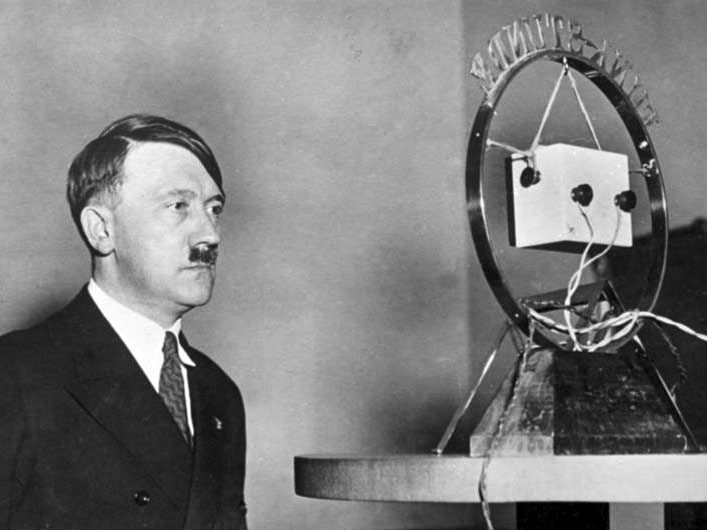
Originally, the term was used in Germany before the rise of NSDAP as a colloquial and derogatory word referring to an awkward, backward, and clumsy peasant. It would go on to be used as a mockery of the name Ignatz—a German variation of Ignatius.
Indeed, Ignatz was a name common in Bavaria, the region from which the NSDAP emerged. This came to haunt them as opponents tried to draw parallels between the widely mocked name and the party.
Opponents of NSDAP also used the word “Sozi” prior to “Nazi” as a derogative representation of the word Sozialist or “Socialist” in English.
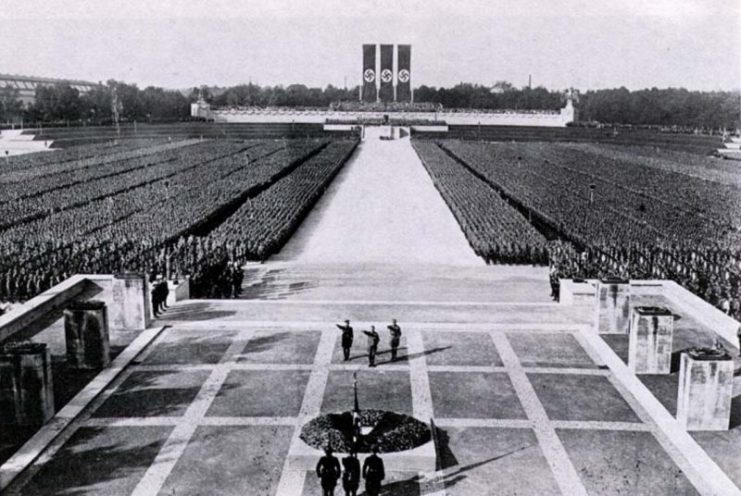
In the 1920s, in a bid to associate the NSDAP with the contemptuous colloquial term “Sozi” and the name “Ignatz,” opponents of national socialism tweaked the first part of the party’s name, (Na)tionalSo(zi)alistische, to coin the term “Nazi” for the socialist party.
Clearly, this awkward sobriquet was not something Hitler and his National Socialists had signed up for.
In the 1930s, when the NSDAP would eventually rise in power, the term became more widely spread by exiles who used it to refer not just to the party, but to everything associated with it.
This brought about the terms “Nazi Germany,” “Nazi Regime,” and “Nazism” among others.
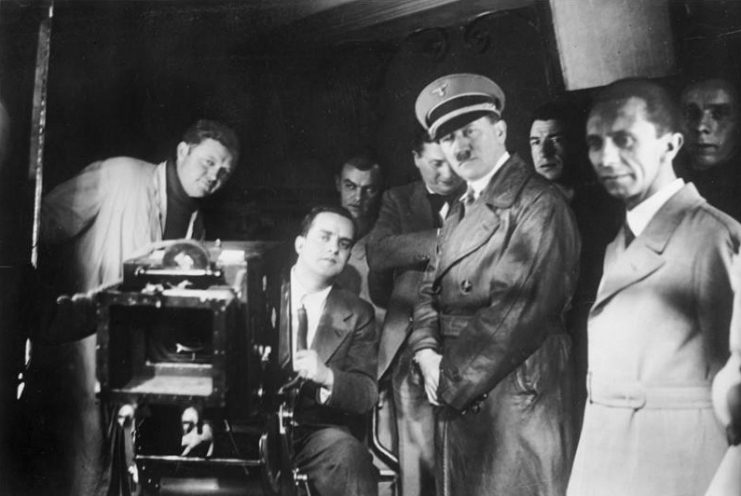
However, neither the term nor any of its derivatives were used within Germany. Anyone doing so might face serious consequences. But the exiles ended up spreading the term across Europe and beyond.
Seeing that the term had become widely used across German borders in place of the rather tedious Nationalsozialistische Deutsche Arbeiterpartei or its acronym, the NSDAP tried reappropriating the term.
Interestingly, the “National” in Nationalsozialist was pronounced /ˌnatsi̯oˈnaːl/ in German, and approximately pronounced as [ˈnäːtsi], so this could have been one of the reasons why the NSDAP decided to reappropriate the term.
However, because of the unbearably bad taste it left, they quickly dropped the idea and generally avoided using the term while still in power.
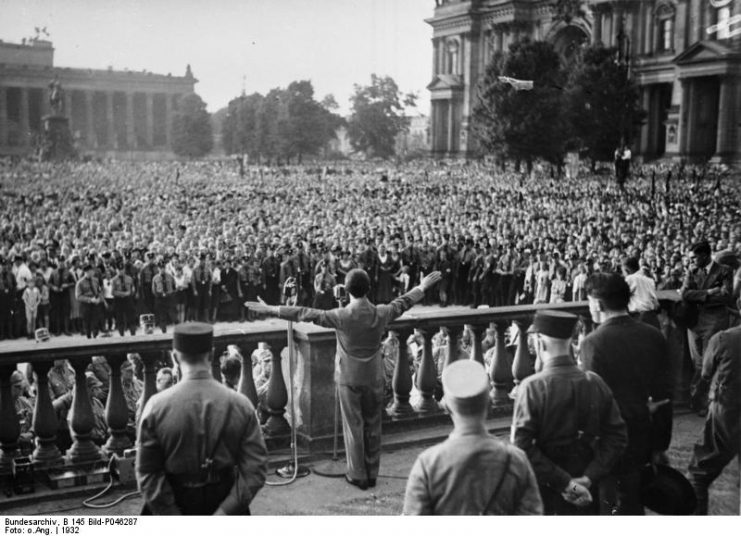
Hitler never used the word in his conversations. Herman Goering also avoided including the term in any of his speeches. The same could be said of over 550 members of the NSDAP who were interviewed by Professor Theodore Abel of Columbia University in 1933.
Read another story from us: How Communists in Germany Allied with Nazis to Destroy Democracy
A book entitled Account Rendered was published in 1963 as an account of the experiences of Hitler Youth leader Melita Maschmann. In her book, Maschmann never used the word “Nazi.” They all preferred to be called National Socialists and referred to their movement as National Socialism.
The words “Nazi” and “Nazism” were clearly terms used by enemies of Germany. They would eventually be used within the borders of Germany, but only after the war ended, when the NSDAP was powerless once again.
